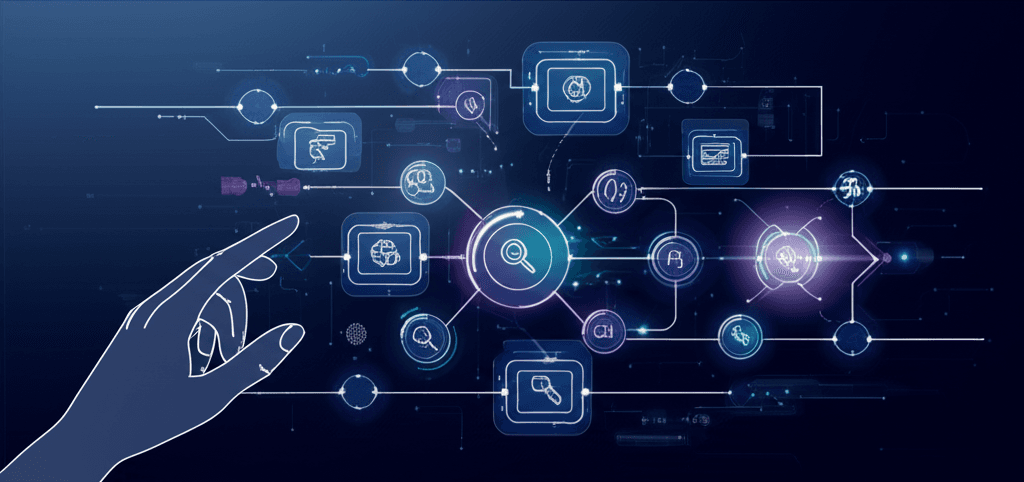OpenAI Unleashes Agent SDK, Responses API for Autonomous AI Development
Empowering developers with a production-ready SDK, unified API, and boosted models for reliable, autonomous AI agents.
June 3, 2025

OpenAI is significantly advancing its capabilities for developers, introducing a suite of new features and improvements designed to streamline the creation and deployment of sophisticated AI agents and enhance its underlying language models. These updates focus on providing more robust tools for building agentic workflows, simplifying complex processes, and boosting the performance and reliability of AI applications. The initiative aims to empower developers and enterprises to build more useful and reliable AI agents capable of independently accomplishing tasks on behalf of users.[1][2]
A central piece of this rollout is the new Agents Software Development Kit (SDK) and the Responses Application Programming Interface (API).[3][4][1] The Agents SDK is engineered to facilitate the orchestration of both single-agent and multi-agent workflows.[4][1] It provides developers with tools to define distinct agents, manage the transfer of control between them (a feature referred to as "handoffs"), establish safety checks for input and output to prevent undesirable behavior ("guardrails"), and visualize agent execution traces for debugging and performance optimization ("tracing & observability").[3][4] This SDK is available in Python and now also in TypeScript, with the latter matching the Python version in features, including fine-grained control mechanisms and options for human approval.[5][6] The Agents SDK is positioned as a production-ready upgrade to OpenAI's previous experimental agent framework, Swarm, and is designed to be lightweight and easy to use with few abstractions.[6][7][8] It supports current OpenAI models like o1, o3-mini, GPT-4.5, GPT-4o, and GPT-4o-mini, and allows augmentation with external knowledge through vector stores and the Embeddings API.[3]
Complementing the Agents SDK is the new Responses API, which is set to become the primary API for developers building agentic applications.[3][4] The Responses API combines the simplicity of the existing Chat Completions API with the advanced tool-use capabilities previously found in the Assistants API.[4][1] This unified approach allows developers to solve increasingly complex tasks using multiple tools and model turns within a single API call.[3] Crucially, the Responses API comes with built-in support for external tools, including web search, local file search, and even computer control via mouse and keyboard emulation.[3][4][1] The web search tool leverages the same models used for ChatGPT search, demonstrating high accuracy on benchmarks like SimpleQA.[3] While the computer use tool shows promise, its current performance on benchmarks like OSWorld suggests it is still developing reliability for automating operating system tasks.[3] OpenAI has indicated that while the Chat Completions API will continue to be supported and enhanced, the Assistants API will be deprecated, with a target sunset date in mid-2026, encouraging developers to migrate to the more flexible Responses API.[3][1][9]
Beyond the new SDK and API, OpenAI has also focused on improving its core language models to better support these agentic functionalities. An updated version of its language model, available as "gpt-4o-realtime-preview-2025-06-03" through the real-time and chat API, demonstrates more accurate instruction following, more reliable tool calling, and more graceful handling of interruptions.[5] This is particularly relevant for a new "RealtimeAgent" feature within the Agents SDK, enabling the creation of voice agents that can run client-side or server-side, support voice interruptions, and call tools during a conversation.[5] The Traces dashboard has also been updated to provide real-time data from these voice agents.[5] Furthermore, OpenAI has been refining models like the "o1" and "o3" series, which are optimized for reasoning and complex problem-solving, making them suitable for powering these advanced agents.[10][11][12] The "o1" models, for example, show substantial improvements in handling rare variants of common tasks, though they still exhibit sensitivity to the probability of examples and tasks.[10] New speech-to-text models like gpt-4o-transcribe and gpt-4o-mini-transcribe have also been introduced, offering improved transcription accuracy by better handling accents, background noise, and speech variations.[13] The gpt-4o-mini-tts model provides greater steerability for AI-generated voices.[13]
These enhancements collectively signal a significant push by OpenAI towards a future where AI agents play a more integral role in various industries by automating complex tasks and enhancing productivity.[3][9] The new tools are designed to lower the barrier for entry for developers, making it easier to build, deploy, and scale reliable, high-performing AI agents.[2][14] By simplifying orchestration, providing built-in tools for common tasks like web and file search, and improving model capabilities, OpenAI is addressing key challenges developers faced in turning advanced AI capabilities into production-ready applications.[1][2][14] The focus on observability and guardrails also points to a growing emphasis on responsible AI development and the need for developers to control and understand agent behavior.[3][4][6] The implications for the AI industry are substantial, likely accelerating the development of more autonomous and capable AI systems across sectors such as customer support, research, content generation, and sales prospecting.[3] As these agentic capabilities become more accessible, competition in the AI platform space is expected to intensify, with a greater emphasis on ease of use, a rich ecosystem of tools, and the power of underlying models.[15][16][17] The ability to seamlessly integrate real-world data and actions directly into AI workflows is a critical step towards creating AI systems that can more effectively assist and collaborate with humans.[14]
Sources
[3]
[4]
[6]
[7]
[8]
[9]
[10]
[11]
[12]
[13]
[16]
[17]